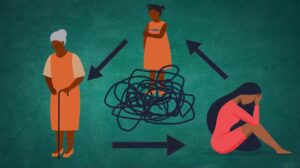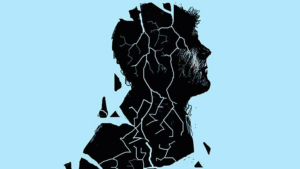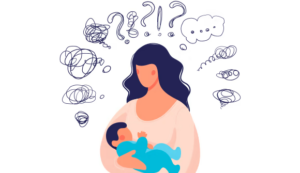Feelings of anxiety, stress, or shortness of breath are pretty common when it comes to pressure or anxiety-inducing causes. However, do you know that such feelings of anxiety can reach such extreme lengths that one feels completely out of control, may tremble, choke, faint physically, or even experience feelings that they are dying? Yes. That’s what we call a panic attack.
Panic attacks in India are majorly classified under the Panic Disorder in the DSM-5 and other diagnostic manuals of mental illnesses, however, they can occur with other comorbid conditions as well such as depression, anxiety, and frequently show similar symptoms to the withdrawal symptoms as shown by substance abuse. Various phobias such as Agoraphobia also ensue the feelings of panic while the person is subjected to the cause of fear immediately, without proper supervision and guidance.
The prevalence of panic attacks amongst the Indian population is officially recorded to be around 1% – 2%, however, it is also important to note that due to the lack of awareness about the rush of emotions and fear experienced during panic attacks, in most cases – especially in the rural parts of the country- they are hardly ever counted as a part of the prevalence rate as a whole. It is also essential to note perspectives that point out lesser levels of mental stress and more connection with nature prevent the rural population from experiencing severe panic attacks.
Taking into consideration the tumultuous history of India, the socio-economic status of the people, the gender biases, and related division of responsibilities studies have shown that females are more prone to panic attacks than men. It is rather scanty in children and the elderly, which can be explained by the environmental, familial, financial, and work-related pressure on working adults. India’s gradual shift into nuclear families has had both positives – including lesser familial and financial pressure on the working adults, as well as negatives – wherein it played a significant role in disconnecting people where sharing one’s discomfort, pain or happiness is rather rare.
Research also suggests that Indian patients receiving treatment showed a substantial amount of diversion from the symptoms noted in the DSM – IV thereby confirming the perspective that the causes, the resilience to, and the effect of panic disorders can significantly vary cross-culturally – which in a nutshell means that there is not one common cause for different people to experience panic attacks. One may be genetically prone to such experiences or more resilient to certain factors than others. It is important to remember every individual is different, the symptoms may vary across cultures too. This ensures experts turn their attention to finding newer ways to spread awareness and customize treatment plans according to the phenomenological experiences of the patient, with careful diagnosis.
It is interesting to note that ongoing research is tapping its way into the lives and the phenomenological experiences (or ‘lived’ experiences) of the local Indian population. Moving away from the notion of ‘one size fits all’, experts are tailoring therapeutic methodology, counseling strategies, and treatment plans particularly meant for the Indian population.
Cognitive Behavioural Therapy (CBT) is widely used as the most effective way panic attacks treatment in India and any discomfort or symptoms revolving around anxiety disorders. It is not only applied in the Western context but is seen to work well on the urban Indian population as well. CBT has been an effective means to treat panic attacks showing gradual changes in the patients by the 4th and 5th week of intervention.
Studies show that the root cause of fear is at the ‘mental’ level and needs both cognitive and behavioural interventions to treat the disorder completely.
While there are many treatment options available for the panic attacks treatment in India and extreme feelings of anxiety, the lack in the status of anxiety disorder research from India concerning epidemiology, phenomenology, course, outcome, and management is slowing down the awareness and progress in the development of other potential treatment methods. Experts suggest conducting further research in the areas of genetics, biomedical causes, and neurobiological treatments along with non-invasive and holistic techniques such as yoga, meditation, and psychotherapies of Indian origin to make sure treatment reaches everyone who goes through panic attacks.
How can CoachForMind help?
- Licensed Psychologist: We are a team of licensed RCI-registered clinical psychologists. Our team has best practices for panic attacks treatment in India
- Tailored Solutions: We at CoachForMind understand the individual need which is why we offer client-centric one-on-one therapy.
- Proven Techniques: Our approach to therapy is grounded in scientific research such as Cognitive behavioral therapy and Dialectical behavioral therapy. These therapies are designed for people who experience intense mood swings. These therapies help people who have potentially destructive or harmful behavior.
- Commitment to Excellence: We are dedicated to delivering the highest quality of service and continuously improving our offerings based on feedback and emerging trends. Our therapists regularly upskill themselves as per the new norms.
For more information please visit our website or contact us directly at coachformind@gmail.com




